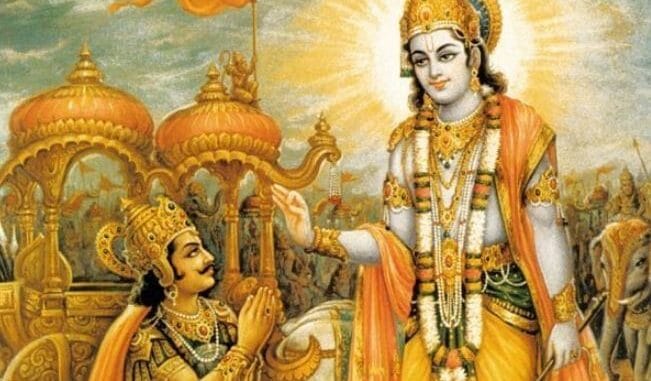
Commentary by Swami Ananda Saraswati
How confusion leads to self-negation? When you are addressing something, never ever say “I am confused”. The other person can point out that you are confused, but it is better to say “I am having some conflict”. This will show that you are sincere and you can really grow out of it. If you say “I am confused” that means you want to wash your hands off the situation, pass the buck to others and remain a confused person. That’s why confusion can be used for others, but not for yourself.
How confusion leads to self-negation? When you are addressing something, never ever say “I am confused”. The other person can point out that you are confused, but it is better to say “I am having some conflict”. This will show that you are sincere and you can really grow out of it. If you say “I am confused” that means you want to wash your hands off the situation, pass the buck to others and remain a confused person. That’s why confusion can be used for others, but not for yourself.
The first step of your confusion starts from the questions like “Why should I do it? What is there in life?” You start becoming very self defensive. It happens by negating others and the truth. Arjuna says, oh Krishna! I don’t want to kill these people. What will I get by killing? At some point, I will definitely become a King but do you think it is worth it? Even if I get the entire world, including Heaven, I am not interested in killing them. You can see for yourself the Vairagya.
The word ‘Vairagya’ means dispassion. There are two types of Vairagya – Samsara Vairagya and Prasava Vairagya. The ‘real’ Vairagya comes out of Viveka. Samsara Vairagya is when you go to the burial ground, you are a perfect Vairagi. At that moment you think “What is there in life?”. You become a great philosopher. However, this thinking continues until you leave the burial ground. Prasava Vairagya is when a lady delivers the baby, the lady thinks “it’s enough and no more”. But this thinking continues only till she delivers the next baby.
The ‘real’ Vairagya must come out of Viveka (discriminative power) and not out of your frustration or helplessness. Here Arjuna highlights “What is the form of having the kingship including three worlds, by killing these people even if they are ready to kill me?”. This means the Vairagya came out of frustration and not out of Viveka.
Here Arjuna highlights to Krishna, “What sort of satisfaction would be there for me by killing the son of Dhritarashtra? Only Sin comes to me by killing these people, those who are wrong doers.” Even though Dhritarashtra has created a lot of trouble, Arjuna shows his intrapersonal conflict memory. Your memory always takes over through that lens where you have not resolved or you don’t have strength to face. For example, if you have been rejected by someone, knowingly or unknowingly, that memory of the other person is so strong in you and it’s not that easy to overcome it.
The moment you try to look at that memory there are a lot of issues in you. Instead of planning to look at that memory, you try to gloss over or always try to postpone. In each verse Arjuna is addressing Krishna by different names to draw his attention and make sure that he is listening to him. All the relationships are like that. In any relationship, you want others to support you. As long as the other person supports you, you relate with the person. If the other person doesn’t support you, would you like to have a relationship with that person? Remember that is not a relationship. In that case it is better to have a relationship with animals, not with human beings as you will never grow up in your life.
Compiled by Krithika Sanjeevi